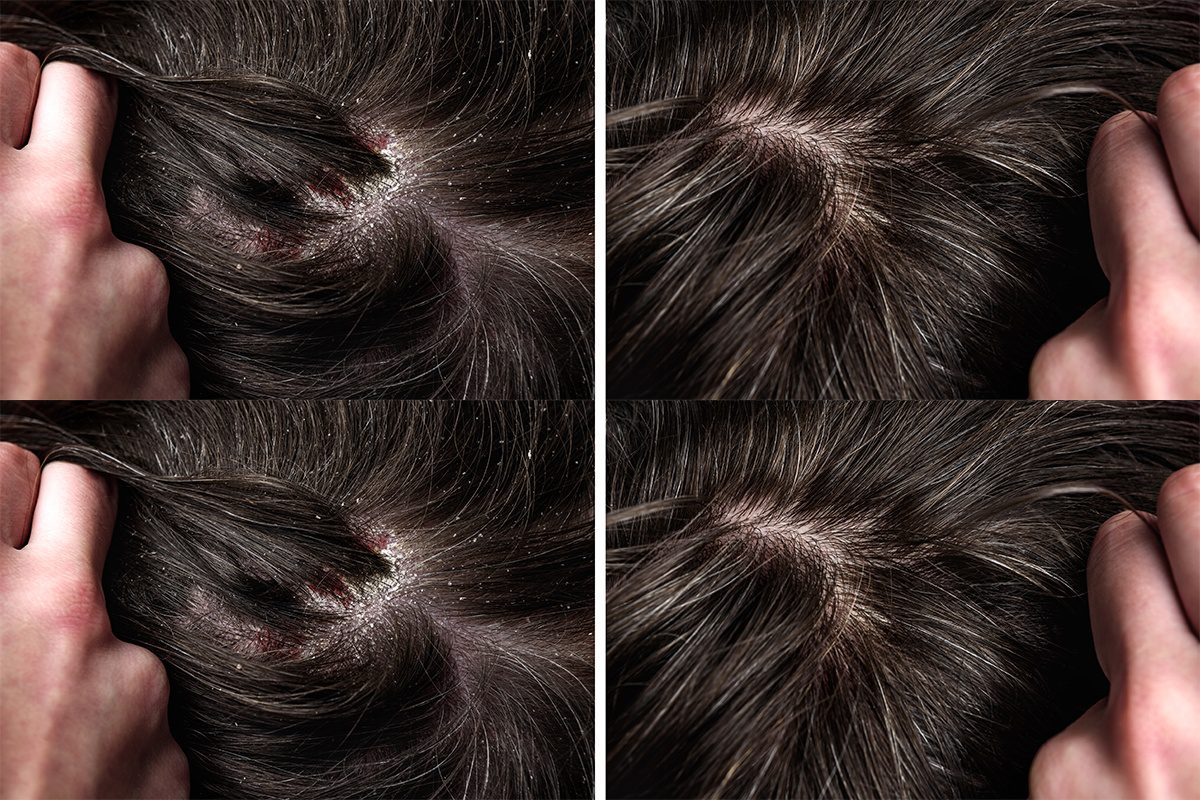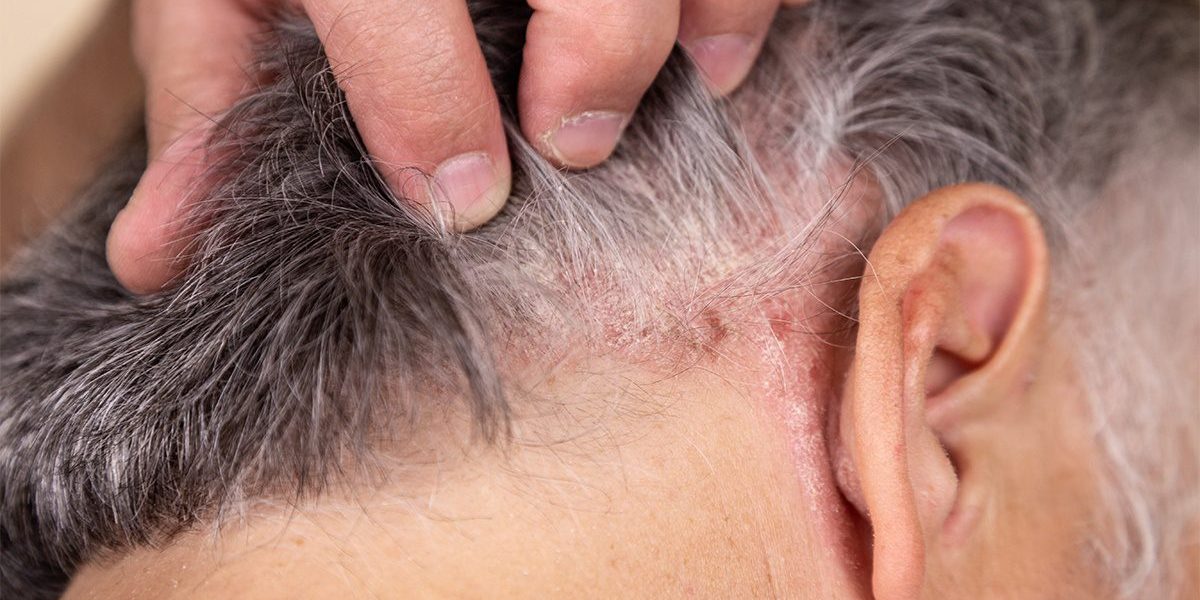Psoriasis is a skin disease that ends up creating red, itchy scaly spots on the knees, elbows, trunk, and scalp. Psoriasis is a prevalent, long-term (chronic) condition for which there is currently no treatment. It tends to stretch up for a few weeks or months, then subside for a period or go into remission. This blog lets us know about Psoriasis on Scalp and other details.
What actually means Psoriasis on Scalp?
Scalp psoriasis is a common skin disease characterized by raised, reddish, and often scaly areas. It might appear as a single patch or many patches, and it can even affect your entire scalp. It can also extend to your brow, back of your neck, and behind and inside your ears.
It is impossible to get scalp psoriasis from another individual. We don’t know what causes it, just like we don’t know what causes other varieties. Doctors believe it is caused by a problem with your immune system, which causes skin cells to develop too fast and form patches. If you have a family history of it, you are more likely to get it.
What is the definition of psoriasis?
Psoriasis is an autoimmune infectious skin disease that affects people of all ages. It is identified by skin thickening and silvery scales, and it can affect any part of the skin.
This includes the scalp, legs, hands, chest, and back, as well as finger and toenails. In some cases, psoriatic inflammation can affect joints, creating arthritis-like pain known as Psoriatic arthritis.
What causes play a role in the development of psoriasis?
Normally, the outer layer of the skin’s cells are removed every three to four weeks and replaced by the new cells from the inner layer; however, in Psoriasis, this process is quickened, resulting in new cell formation even before the old cell is gone, resulting in skin thickness (hyperkeratosis).
Though the actual reason for psoriasis is unknown, it is believed that our immune cells attack healthy skin cells, mistaking them for foreign ones. This process includes phases of worsening and suspension, with the following circumstances acting as triggers:
- Stress is caused by any source
- Hereditary factors such as positive family history, as well as other autoimmune diseases
- Skin injuries and infections
- Smoking and drinking habits, a lack of vitamin D, and certain medications such as hypertension medicines, to name a few
What is the most common cause of Psoriasis on the Scalp?
Psoriasis is caused, at least in part, by the immune system attacking healthy skin cells by mistake. When you’re unwell or have an infection, your immune system goes into overdrive to combat it. This might cause another psoriasis lightening. A typical reason is strep throat.


According to the researchers, the scalp is one of the most often afflicted body areas by psoriasis. It can range from microscopic scale spots to a thick, slimy coating over the whole scalp.
This may spread across the forehead, down the back of the neck, and over the ears in severe instances. Homeopathy is a common medicine for the homeopathy treatment let it be constitutional treatment also.
What is the severity of scalp psoriasis?
Except in situations of erythrodermic psoriasis, psoriasis is not typically considered life-threatening. This uncommon kind of psoriasis can affect the entire body. Shivering and fluid retention are common symptoms of erythrodermic psoriasis, and it can raise the risk of pneumonia and heart failure.
Is it possible to treat scalp psoriasis?
While there is no cure for Psoriasis in amateur treatments, there are more effective psoriasis therapies available now than ever before. Psoriasis treatment can help alleviate symptoms while also lowering the likelihood of developing additional health problems such as psoriatic arthritis, heart disease, obesity, diabetes, and depression.
Is it possible to get scalp psoriasis at any age?
Psoriasis can develop at any age, however, it is most commonly diagnosed between the ages of 15 and 25. People of color are more prone to it. Psoriasis most typically affects the scalp, causing thin, dry, scaly skin or highly hardened disease sections.
Is it possible for scalp psoriasis to cause brain damage?
There is considerable evidence that the inflammation that causes psoriasis might have an impact on the brain. Psoriatic arthritis is linked to inflammatory substances known as cytokines.
Is there anything else going on?
Scalp psoriasis has the potential to produce two complications:
- Bleeding: Itching and pain are common symptoms of scalp psoriasis. Scratching or removing scales can cause bleeding
- Hair thinning: Hair loss can be caused by the influence on hair follicles, extensive scaling, and frequent scratching. When the scalp is injured, whole clumps of hair may fall off. Certain scalp psoriasis therapies, as well as stress, may exacerbate hair loss
If you have scalp psoriasis, consult a doctor about measures to prevent hair loss. You may need to avoid hair treatments (such as colors and perms) or adjust your psoriasis therapy for your scalp. But bear in mind that your hair will regrow.
Homeopathy Treatment for Psoriasis on Scalp
According to studies and scientific investigations, homeopathy delivers scientific answers for psoriasis. Many patients suffered from psoriasis and had found little or no relief from standard treatments. Constitutional homeopathy practices support individuals to improve their immunity and lead healthier life.
The addition of these pleasant, insignificant-looking globules has really improved it. Aside from that, those with psoriasis who have had homeopathic treatment have experienced a considerable improvement in their quality of life.
Homeopathic treatments target the immune system and help the body return to normal while causing no side effects. This not only restores the body’s immunological balance but also progressively encourages the immune system to function physiologically.
Psoriasis therapy is long-term since the disease is persistent, and there are no easy solutions.








